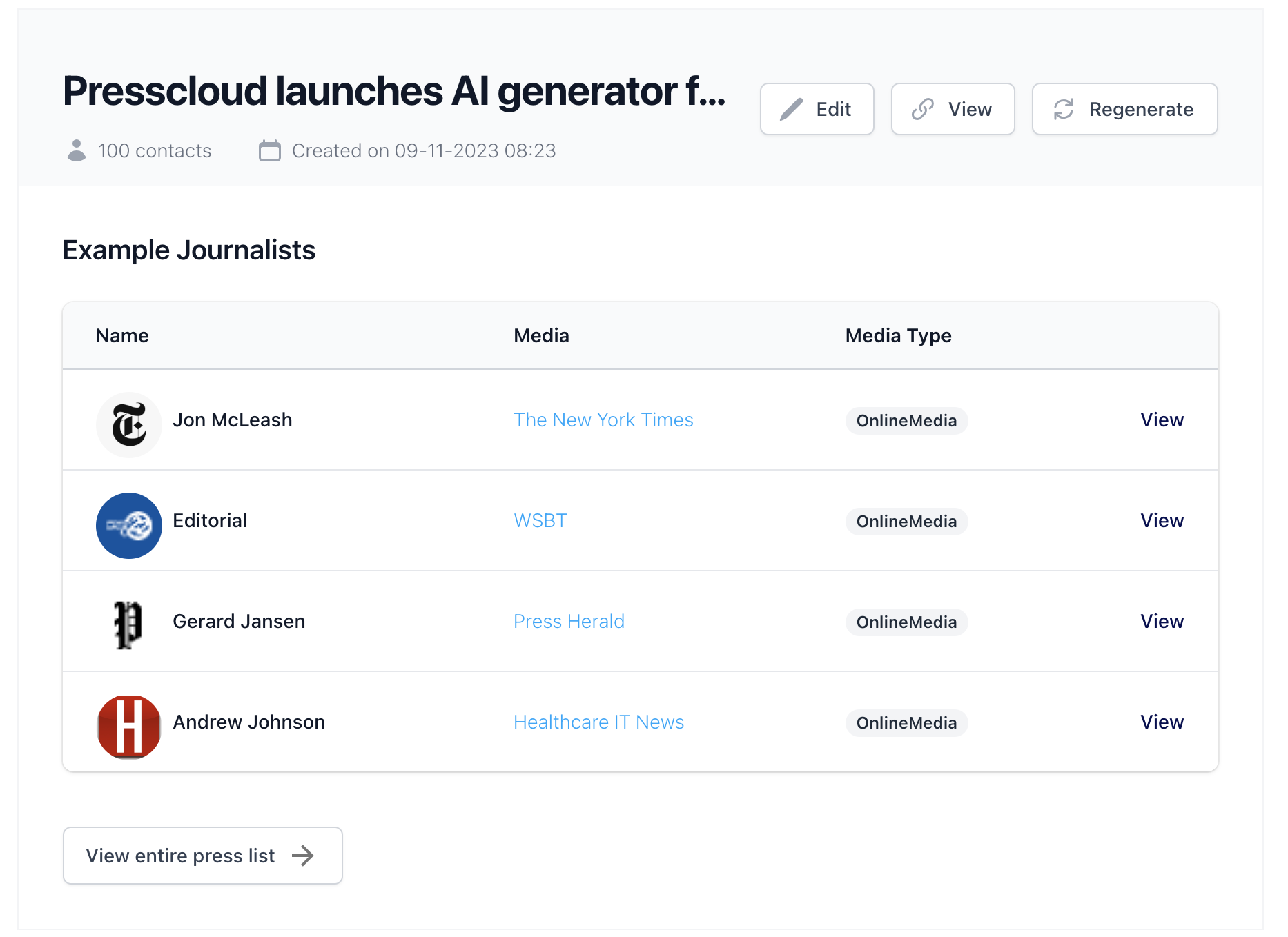Digital PR has become a crucial aspect for startups in today's competitive digital landscape. It helps establish brand identity, reach target audiences, and effectively communicate with stakeholders. To navigate the world of digital PR successfully, startups need to understand the basics, build a solid strategy, implement key components, and overcome common challenges. In this article, we will explore each of these elements in detail.
Understanding the Basics of Digital PR
Digital PR is a rapidly growing field that has become essential for startups looking to establish a strong online presence. In today's digital age, it is crucial for startups to leverage online platforms and digital channels to manage their reputation, build brand awareness, and engage with their target audience. Digital PR involves utilizing various digital marketing techniques, such as content creation, social media management, influencer partnerships, and search engine optimization (SEO).
One of the key aspects of digital PR is content creation. Startups need to create high-quality and engaging content that resonates with their target audience. This can include blog posts, articles, videos, infographics, and more. By creating valuable content, startups can position themselves as industry experts and thought leaders, which helps enhance their brand credibility and trust among potential customers and investors.
Social media management is another important component of digital PR. Startups need to effectively utilize social media platforms to engage with their audience, share valuable content, and build a community around their brand. By actively participating in conversations, responding to comments and messages, and sharing relevant industry news, startups can foster meaningful relationships with their target audience.
Influencer partnerships have also become a popular digital PR strategy for startups. Collaborating with influencers who have a strong online presence and a loyal following can help startups reach a wider audience and gain credibility. By partnering with influencers who align with their brand values and target audience, startups can leverage their influence to promote their products or services.
Furthermore, search engine optimization (SEO) plays a crucial role in digital PR. Startups need to optimize their website and content to rank higher in search engine results pages (SERPs). By implementing SEO best practices, such as keyword research, on-page optimization, and link building, startups can increase their online visibility, drive organic traffic to their website, and generate leads.
Importance of Digital PR for Startups
For startups, establishing a strong digital PR presence is crucial for several reasons. Firstly, it helps enhance brand credibility and trust among potential customers and investors. In today's digital landscape, consumers heavily rely on online research and reviews before making purchasing decisions. By effectively managing their online reputation and building a positive brand image through digital PR, startups can instill confidence in their target audience and attract more customers.
Secondly, digital PR enables startups to effectively communicate their unique value propositions and differentiate themselves from competitors. In a crowded marketplace, startups need to find ways to stand out and capture the attention of their target audience. Through strategic digital PR efforts, startups can craft compelling brand stories, highlight their key differentiators, and showcase their expertise, which helps them gain a competitive edge.
Additionally, digital PR plays a significant role in increasing brand visibility, driving website traffic, and generating leads. By leveraging various digital marketing techniques, startups can increase their online visibility and reach a wider audience. This, in turn, can drive more traffic to their website, increase brand awareness, and ultimately generate more leads for their business.
In conclusion, digital PR is an essential aspect of startup marketing. By utilizing online platforms and digital channels, startups can effectively manage their reputation, build brand awareness, and engage with their target audience. Through content creation, social media management, influencer partnerships, and SEO, startups can enhance their brand credibility, differentiate themselves from competitors, and drive business growth.
Building a Digital PR Strategy
Defining Your Startup's Brand Identity
Before embarking on a digital PR journey, startups must clearly define their brand identity. This involves understanding the startup's mission, vision, values, and unique selling points (USPs). By having a clear brand identity, startups can create content that resonates with their target audience and builds brand recognition.
Defining your startup's brand identity is a crucial step in establishing a strong presence in the digital world. It goes beyond just having a logo and a catchy tagline. It requires a deep understanding of what your startup stands for and what sets it apart from the competition.
Start by clearly defining your startup's mission. What problem are you trying to solve? What value do you bring to your customers? This mission statement will serve as the foundation for all your digital PR efforts.
Next, identify your startup's vision. Where do you see your company in the future? What are your long-term goals and aspirations? Having a clear vision will help guide your decision-making process and ensure that your digital PR strategy aligns with your overall business objectives.
Understanding your startup's values is also essential. What principles and beliefs do you want your brand to be associated with? Are you committed to sustainability, innovation, or social responsibility? These values will shape the way you communicate with your target audience and the type of content you create.
Lastly, identify your unique selling points (USPs). What makes your startup different from others in your industry? Is it your technology, customer service, or pricing? By highlighting your USPs, you can position your brand as the go-to solution for your target audience's needs.
Identifying Your Target Audience
A successful digital PR strategy starts with identifying the target audience. Startups need to determine who their ideal customers are, what their needs and pain points are, and where they can be found online. This knowledge will help shape the content, messaging, and platforms used to reach and engage with the target audience effectively.
Identifying your target audience is like finding the key to unlock the door to success. It allows you to tailor your digital PR efforts to the specific needs and preferences of your ideal customers.
Start by creating buyer personas for your target audience. These are fictional representations of your ideal customers, based on demographic information, interests, and behaviors. By understanding who your customers are, you can create content that speaks directly to them and addresses their pain points.
Once you have defined your buyer personas, it's time to research where your target audience can be found online. Are they active on social media platforms like Facebook, Instagram, or LinkedIn? Do they frequent industry-specific forums or online communities? Knowing where your audience hangs out will help you choose the right channels to reach them.
Furthermore, understanding your target audience's needs and pain points is crucial for creating compelling content. What challenges do they face? How can your startup provide a solution? By addressing these pain points in your content, you can position your brand as an expert and build trust with your audience.
In conclusion, building a digital PR strategy requires a deep understanding of your startup's brand identity and target audience. By defining your brand identity and identifying your target audience, you can create content that resonates with your ideal customers and effectively engage with them online.
Key Components of Digital PR
Content Marketing and SEO
Content marketing and SEO go hand in hand when it comes to digital PR. Creating high-quality, relevant content can help startups establish thought leadership, attract organic traffic, and provide value to their target audience. Leveraging keyword research and on-page optimization techniques will maximize the visibility and searchability of the content.
Social Media Management
Social media management is crucial for startups to effectively connect with their audience, generate buzz, and foster brand loyalty. Startups should identify the social media platforms where their target audience is most active and develop a consistent posting schedule. Engaging with followers, sharing valuable content, and monitoring conversations are essential for building a strong social media presence.
Influencer Marketing
Influencer marketing has become a powerful tool for startups to amplify their brand message and reach a wider audience. Collaborating with influencers who align with the startup's values and target audience can significantly increase brand exposure and credibility. Startups need to identify and engage with relevant influencers and build authentic partnerships to ensure mutual benefits.
Implementing Your Digital PR Plan
Choosing the Right Digital PR Tools
When implementing a digital PR plan, startups need to leverage the right tools to streamline their efforts. There are various tools available for content creation, social media management, influencer identification, and analytics. By choosing the right tools based on their specific needs and goals, startups can optimize their digital PR activities and measure their effectiveness.
Measuring and Analyzing Your PR Efforts
Measuring and analyzing the effectiveness of digital PR efforts is crucial for startups to understand what works and what needs improvement. Key performance indicators (KPIs) such as website traffic, engagement metrics, conversion rates, and media mentions can provide valuable insights. By continuously monitoring and analyzing these metrics, startups can adapt their digital PR strategies to achieve better results.
Overcoming Common Digital PR Challenges
Dealing with Negative Publicity
Startups may occasionally face negative publicity or public scrutiny. It is essential to handle such situations promptly and transparently. Adopting a proactive approach, acknowledging concerns, and addressing them professionally can help mitigate the impact of negative publicity and maintain brand reputation.
Staying Relevant in a Fast-Paced Digital World
The digital landscape is constantly evolving, and startups need to stay ahead of the curve to remain relevant. Embracing emerging technologies, monitoring industry trends, and continuously innovating are vital for sustaining digital PR success. By staying agile and adaptable, startups can seize new opportunities and maintain a competitive edge.
In conclusion, digital PR is a fundamental aspect for startups looking to establish a strong online presence. By understanding the basics, building a solid strategy, implementing key components, and overcoming challenges, startups can effectively leverage digital PR to achieve their business goals and thrive in the digital era.

